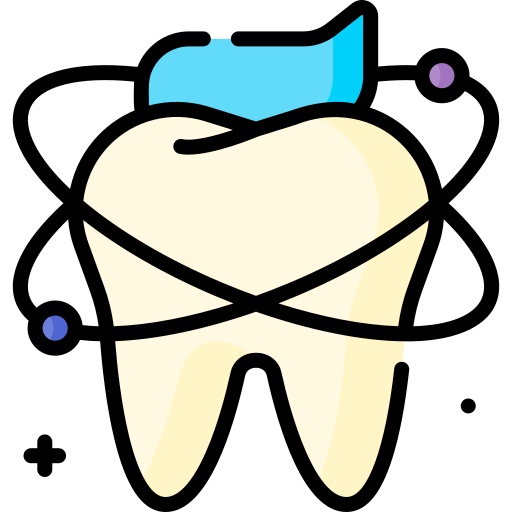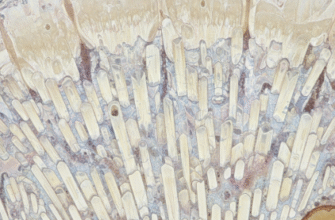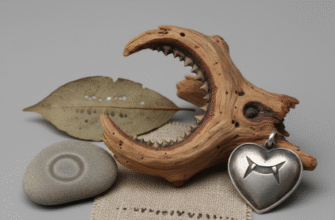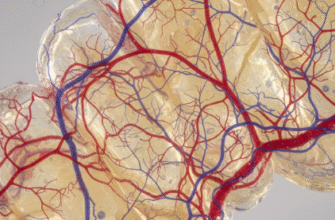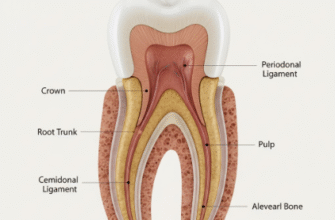That sickening crunch. A sudden gap where a piece of tooth used to be, or perhaps your trusty denture has snapped clean in two. Panic often sets in, followed by a frantic search for a quick fix. In these moments of dental distress, the siren song of a tiny tube of superglue, promising an instant, strong bond, can be incredibly tempting. It’s cheap, it’s in most household junk drawers, and it seems like a perfectly logical, albeit temporary, solution. Why call a dentist and wait for an appointment, potentially incurring costs, when a dab of glue might just hold things together? This line of thinking, while understandable in a pinch, is unfortunately a direct route to bigger, more painful, and often more expensive problems down the line. The myth that superglue is a viable option for dental repairs is one that needs to be thoroughly debunked, for the sake of your smile and your overall health.
The Allure of the Instant Fix: Why We’re Tempted
Let’s be honest, dental emergencies are rarely convenient. They happen at the worst times – just before a big presentation, on holiday, or late on a Friday night. The desire to immediately restore function and appearance is strong. Superglue, or cyanoacrylate adhesive as it’s technically known, is famous for its rapid bonding capabilities on a variety of materials. We’ve all used it to mend broken ceramics or reattach a loose bit of plastic. Its reputation for creating a powerful, almost instantaneous bond makes it seem like an ideal candidate for a broken tooth or denture. Furthermore, the perceived cost-saving is a huge factor. Dental work can be expensive, and the idea of a virtually free fix is undeniably attractive, especially if it’s seen as just a “temporary” measure until one can get to a dentist. However, what works on inanimate objects is rarely suitable, and often dangerous, for the delicate and dynamic environment of the human body, especially the mouth.
Decoding the Danger: What’s Really in Superglue?
The primary ingredient in most superglues is cyanoacrylate. While this chemical compound is fantastic for creating strong adhesive bonds on dry, static surfaces, it was never intended for biological application inside the human mouth. Here’s why it’s a problem:
Chemical Irritation and Toxicity
Cyanoacrylates are industrial chemicals. When they come into contact with the soft tissues of your mouth – your gums, tongue, cheeks, and the lining of your oral cavity – they can cause significant irritation. This isn’t just a mild discomfort; it can lead to chemical burns, inflammation, and painful sores. Think about the fumes superglue releases as it cures; these same volatile organic compounds are being released directly into your mouth and can be inhaled. For some individuals, there’s also the risk of an allergic reaction, which could range from localized swelling and redness to more severe systemic responses. Your mouth is a sensitive ecosystem, and introducing harsh industrial adhesives can disrupt its balance dramatically.
The Heat is On (And Not in a Good Way)
The curing process of superglue – the chemical reaction that causes it to harden and bond – is exothermic. This means it generates heat. While it might not be enough to feel significantly hot on your fingertip when mending a broken plate, when concentrated on a sensitive tooth structure or against delicate gum tissue, this heat can be surprisingly damaging. If applied to a broken tooth, the heat can potentially traumatize the dental pulp (the living tissue inside your tooth containing nerves and blood vessels), leading to intense pain, inflammation (pulpitis), or even pulp death, which would then necessitate root canal treatment or extraction. Even on a denture, the heat can distort the acrylic material.
Never attempt to use household superglue for any dental emergency. The chemicals are not safe for oral use and can cause severe irritation, chemical burns, or allergic reactions to your gums and mouth tissues. Furthermore, the bond is not stable in the oral environment and can lead to more complex problems.
A Bond Destined to Fail: Why Superglue Doesn’t Last in the Mouth
Even if you were to ignore the immediate chemical dangers, the “super” bond of cyanoacrylate isn’t so super in the challenging conditions of the human mouth. Here’s why that quick fix is doomed from the start:
The Hostile Oral Environment
Your mouth is a warm, moist, and constantly changing environment. It’s subjected to:
- Saliva: Constantly bathing your teeth, saliva will gradually break down the superglue bond. Cyanoacrylates are notoriously susceptible to moisture over time.
- Acidity: Foods and drinks, especially acidic ones like citrus fruits, sodas, and coffee, will chemically attack and weaken the glue.
- Temperature Fluctuations: Think about sipping a hot coffee followed by a gulp of ice water. These rapid temperature changes cause materials to expand and contract at different rates, putting immense stress on the rigid superglue bond until it fractures.
- Chewing Forces: Your bite can exert incredible pressure. Superglue creates a brittle, inflexible bond that simply isn’t designed to withstand the dynamic and powerful forces of mastication. It will crack and fail, often at the most inconvenient moment.
A superglued tooth or denture piece might hold for a few hours, or perhaps even a day if you’re exceptionally careful, but it’s a ticking time bomb. When it inevitably fails, you’re back to square one, possibly having ingested some of the glue, or worse, having caused more damage.
The Choking Hazard You Didn’t Sign Up For
If a piece of a tooth or denture that has been “fixed” with superglue detaches unexpectedly, especially while eating or sleeping, it poses a significant choking hazard. This is a serious risk that far outweighs any perceived benefit of a temporary DIY repair.
The Perils of an Improper Fit: Making Things Worse
Professional dental repairs, whether for a natural tooth or a denture, are all about precision. Dentists and dental technicians work with measurements in micrometers to ensure a perfect fit. Achieving this level of accuracy with a tube of superglue at your bathroom sink is simply impossible. An improper fit, which is virtually guaranteed with a DIY superglue job, leads to a cascade of problems:
A Haven for Bacteria
Even the tiniest gap or uneven surface created by a clumsy glue job becomes a perfect hiding spot for food debris and bacteria. You won’t be able to clean these areas effectively, leading to plaque buildup.
- On a Natural Tooth: This can rapidly lead to tooth decay under and around the “repaired” area, or an infection if the break was near the pulp.
- On a Denture: Trapped food and bacteria can cause bad breath, gum irritation, and fungal infections like denture stomatitis.
Bite Misalignment and Jaw Problems
If a broken tooth fragment or a piece of a denture is glued back even slightly out of its original position, it can throw off your entire bite (occlusion). This might not seem like a big deal, but an incorrect bite can lead to:
- Excessive wear or chipping on other teeth.
- Strain on your jaw muscles and temporomandibular joint (TMJ), potentially causing pain, clicking, or difficulty opening your mouth.
- Headaches and neck pain.
Irritation and Ulcers
Rough edges from excess glue or a poorly aligned piece can constantly rub against your tongue, cheeks, or gums. This chronic irritation can lead to painful mouth ulcers and sores, making eating and speaking uncomfortable.
Turning a Fixable Problem into a Dental Nightmare
Perhaps one of the most frustrating consequences for dentists is how a well-intentioned but misguided superglue attempt can make a professional repair significantly more difficult, more expensive, or in some sad cases, impossible.
The Stubborn Residue
Superglue, once cured, is incredibly difficult to remove completely, especially from the porous surface of a tooth or the intricate details of a denture. Dentists don’t have a magic solvent that will simply dissolve it without affecting the underlying tooth structure or denture material. Attempting to mechanically remove hardened superglue often involves drilling, which can:
- Remove healthy tooth structure, weakening the tooth further.
- Damage the surface of a denture, making a proper repair or reline harder.
- Generate heat, risking pulp damage.
What might have been a relatively straightforward repair (like bonding a small chip or re-cementing a crown) can become a complex procedure due to the presence of superglue. This added complexity inevitably means more time in the dental chair and higher costs.
Masking the Real Issue
A broken tooth or denture is often a symptom of an underlying problem – perhaps extensive decay, an old failing filling, an unbalanced bite, or a poorly fitting denture. Gluing the broken piece back on temporarily masks the symptom but does nothing to address the root cause. This delay allows the underlying problem to worsen, potentially leading to infection, more extensive tooth loss, or the need for a completely new denture instead of a simple repair.
Specific Scenarios: Why Superglue is a No-Go Every Time
Let’s look at common dental mishaps and why superglue is the wrong tool for each job:
Fixing a Chipped or Broken Natural Tooth
This is arguably one of the most dangerous uses of superglue. If the break is deep enough to expose the dentin (the layer beneath the enamel) or, worse, the pulp (the nerve), applying superglue introduces toxic chemicals directly into the sensitive inner parts of your tooth. This can cause excruciating pain, irreversible pulp damage necessitating a root canal, or a severe infection that could spread. Even for a small chip, the glue will prevent a dentist from properly bonding a tooth-colored filling material effectively.
Re-attaching a Loose Crown, Bridge, or Veneer
A crown or veneer that has come loose needs to be re-cemented by a dentist using specialized dental cement. Superglue will not create the proper seal, leaving microscopic gaps where bacteria can seep in and cause decay on the tooth underneath. Moreover, if the crown isn’t seated perfectly (and it won’t be with superglue), your bite will be off, leading to discomfort or damage. The residue from superglue can also make it impossible for the dentist to clean the crown and tooth properly for correct re-cementation, potentially meaning you’ll need a brand new, expensive crown.
Mending a Cracked or Broken Denture
While a denture isn’t living tissue, supergluing it is still a bad idea. The chemicals in the glue can degrade the acrylic material of the denture, making it weaker or causing discoloration. More importantly, you will almost certainly not be able to align the broken pieces perfectly. This slight misalignment will alter the fit of the denture, leading to:
- Painful sore spots on your gums.
- Difficulty chewing and speaking properly.
- Increased risk of the denture breaking again, often in a more complicated way.
The Safe and Sensible Approach: What You SHOULD Do
When faced with a broken tooth or denture, resist the urge to become a DIY dentist. The best course of action is always to seek professional help as soon as possible.
1. Stay Calm and Assess: Try not to panic. Examine the area if you can, but avoid poking or prodding too much.
2. Collect Any Pieces: If a piece of tooth or denture has broken off, try to find it, rinse it gently with water (do not scrub a tooth fragment), and store it in a small container with some milk or saliva (for a tooth fragment) or just dry (for a denture piece). Your dentist may or may not be able to use it, but it’s good to have.
3. Contact Your Dentist Immediately: Call your dental office right away. Explain that you have a dental emergency, whether it’s a broken tooth, lost crown, or broken denture. Most dental practices have emergency slots or will be able to offer advice on how to manage until you can be seen.
4. Rinse Gently (If Appropriate): For a chipped tooth or minor irritation, you can rinse your mouth gently with lukewarm salt water (half a teaspoon of salt in a cup of water) to help keep it clean.
Superglue has its place in the world – for crafts, for household repairs, for mending inanimate objects. But your mouth is a complex, living, breathing part of your body. It deserves professional care from someone who understands its intricacies and has the right tools and materials for the job. Trust your dentist, not the glue tube, to restore your smile safely and effectively. Your future self (and your wallet) will thank you.
